
G L A D E S M E N
The Florida History and Culture Series

UNIVERSITY PRESS OF FLORIDA
Florida A&M University, Tallahassee
Florida Atlantic University, Boca Raton
Florida Gulf Coast University, Ft. Myers
Florida International University, Miami
Florida State University, Tallahassee
New College of Florida, Sarasota
University of Central Florida, Orlando
University of Florida, Gainesville
University of North Florida, Jacksonville
University of South Florida, Tampa
University of West Florida, Pensacola
Copyright 1998 by Glen Simmons and Laura Ogden
Printed in the United States of America on acid-free paper
All rights reserved
First cloth printing, 1998
First paperback printing, 2010
15 14 13 12 11 10 6 5 4 3 2 1
LIBRARY OF CONGRESS CATALOGING-IN-PUBLICATION DATA
Simmons, Glen.
Gladesmen / Glen Simmons and Laura Ogden.
p. cm.(Florida history and culture series)
Includes bibliographical references and index.
ISBN 978-0-8130-1573-6 (cloth)
ISBN 978-0-8130-3555-0 (paper)
1. Everglades (Fla.)Biography. 2. Everglades (Fla.)Social life and customs. 3. Everglades (Fla.)Description and travel. I. Ogden, Laura. II. Title. III. Series.
F317.E9S56 1998
975.9'39dc21 97-51425
The University Press of Florida is the scholarly publishing agency for the State University System of Florida, comprising Florida A & M University, Florida Atlantic University, Florida Gulf Coast University, Florida International University, Florida State University, New College of Florida, University of Central Florida, University of Florida, University of North Florida, University of South Florida, and University of West Florida.

University Press of Florida
15 Northwest 15th Street
Gainesville, FL 32611
http://www.upf.com

F O R E W O R D
Gladesmen: Gator Hunters, Moonshiners, and Skiffers is the third volume of a new series devoted to the study of Florida history and culture. During the past half century, the burgeoning population and increased national and international visibility of Florida have sparked a great deal of popular interest in the state's past, present, and future. As the favorite destination of countless tourists and as the new home for millions of retirees and other migrants, modern Florida has become a demographic, political, and cultural bellwether. But, unfortunately, the quantity and quality of the literature on Florida's distinctive heritage and character has not kept pace with the Sunshine State's enhanced status. In an effort to remedy this situationto provide an accessible and attractive format for the publication of Florida-related booksthe University Press of Florida has established the Florida History and Culture series. As coeditors of the series, we are committed to the creation of an eclectic but carefully-crafted set of books that will providethe field of Florida studies with a new focus and that will encourage Florida researchers and writers to consider the broader implications and context of their work. The series will include standard academic monographs, works of synthesis, memoirs, and anthologies. And, while the series will feature books of historical interest, we encourage authors researching Florida's environment, politics, literature, and popular and material culture to submit their manuscripts for inclusion in the series. We want each book to retain a distinct personality and voice, but at the same time we hope to foster a sense of community and collaboration among Florida scholars.
The natural wonder known as the Everglades has been a subject of enduring fascination, for naturalists and ecologists, for frontier buffs, and for countless others who have felt the strange allure of hidden and remote places. Over the centuries this unique ecosystem adapted to innumerable natural and man-made disasters, penetrations and explorations, the construction of roads and canals, the follies of agribusiness, and the siphoning of water and other precious natural resources. Through it all, the region supported a small but distinct strain of human habitation. This diffuse band of inhabitants traditionally included a diverse assortment of Seminoles, African Americans, West Indians, and settlers of European extraction. Relying on a combination of trapping, fishing, pluming, alligator hunting, and, in more than a few cases, smuggling, these settlers managed to eke out a living from the lowlands and shallows of southern Florida.
Since the creation of the Everglades National Park in 1947, national policy and environmental regulations have restricted patterns of life and work in the Glades. But there was a time, stretching from the mid19th century to the mid1940s, when the gladesmen roamed the marshes and sloughs and hammocks of the region unfettered by law or civilized restraint. Free to experience, to enjoy, or to exploit the full range of the Glades habitat, they lived well beyond the margins of mainstream America. The unique culture fashioned by these men and women helped to inspire the elegant prose of Marjory Stoneman Douglas, the author of the classic folk history The Everglades: River of Grass (1947); and four decades later it animated Loren G. TotchBrown's captivating memoir Totch (1993). The books by Douglas and Brown allowed thousands of readers to taste the literary and cultural waters of the Glades, but many were left thirsting for more.
Fortunately, thanks to the collaborative efforts of Glen Simmons and Laura Ogden, unsated readers now have access to an additional spring of memory and lore. Born in the Everglades in 1916, Simmons has spent his entire life in the river of grass. A master skiff builder and alligator hunter, and one of the Glades' most sought-after guides, he came to maturity during the 1930s and 1940s, the last years of the pre-Park era. A direct link to a culture that has largely disappeared, he is a born storyteller and an able chronicler. Somehow, despite the ravages of wind and water and the press of daily life, he was able to produce and preserve a series of journals and notebooks that document his experiences in the Glades. And, to the benefit of us all, he allowed Ogden, a family friend and anthropologist, to rework his notebooks into a coherent, flowing narrative and to conduct a series of interviews that flesh out the story of his early life. The result is a remarkable work of autobiography and cultural reclamation. The lost world of the early and mid-twentieth century Glades comes alive in Simmons's reminiscences and reflections. Through his words we can recover a significant piece of Florida's past while absorbing an object lesson in environmental philosophy. With Ogden's help and guidance, Simmons has crafted a cautionary tale about a beautiful but fragile expanse of land and sky and water. Gladesmen takes us to an unforgettable but endangered region, a place where nature and humanity coexisted in precarious and unsteady balance, a place not unlike our own.
Raymond Arsenault
Gary R. Mormino
Series Editors

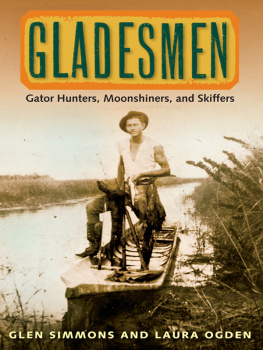

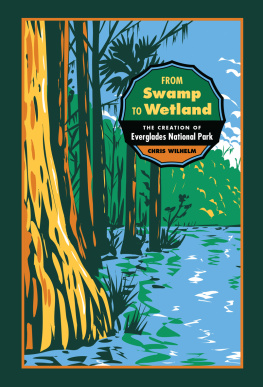
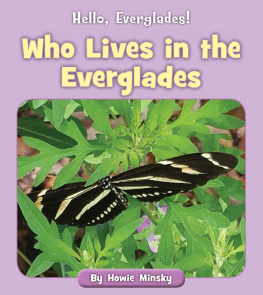

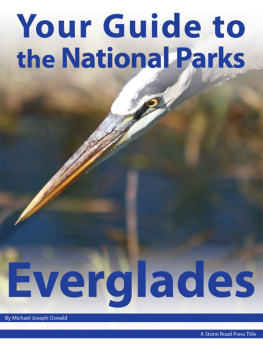
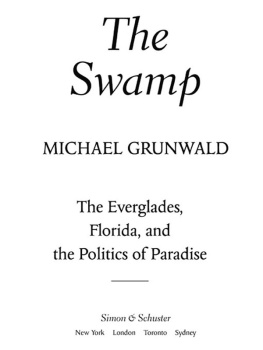
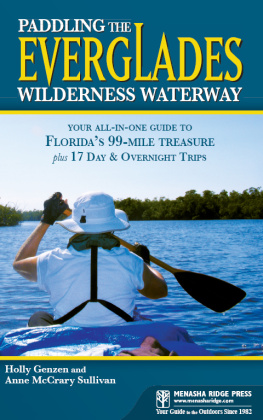

 G L A D E S M E N
G L A D E S M E N
